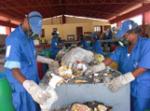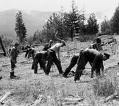Beyond Emergency Relief in Haiti (Groupe URD)
 Below is a stock-taking document by Groupe URD which highlights common themes from the many evaluations that have been carried out concerning the humanitarian response to the earthquake. Chief among them are the importance of urban planning in cities, agricultural revitalization in the countryside, disaster preparedness throughout the country, and the need to focus on communities and institutions rather than individuals. You can also learn more about URD's activities in Haiti here.
Below is a stock-taking document by Groupe URD which highlights common themes from the many evaluations that have been carried out concerning the humanitarian response to the earthquake. Chief among them are the importance of urban planning in cities, agricultural revitalization in the countryside, disaster preparedness throughout the country, and the need to focus on communities and institutions rather than individuals. You can also learn more about URD's activities in Haiti here.





